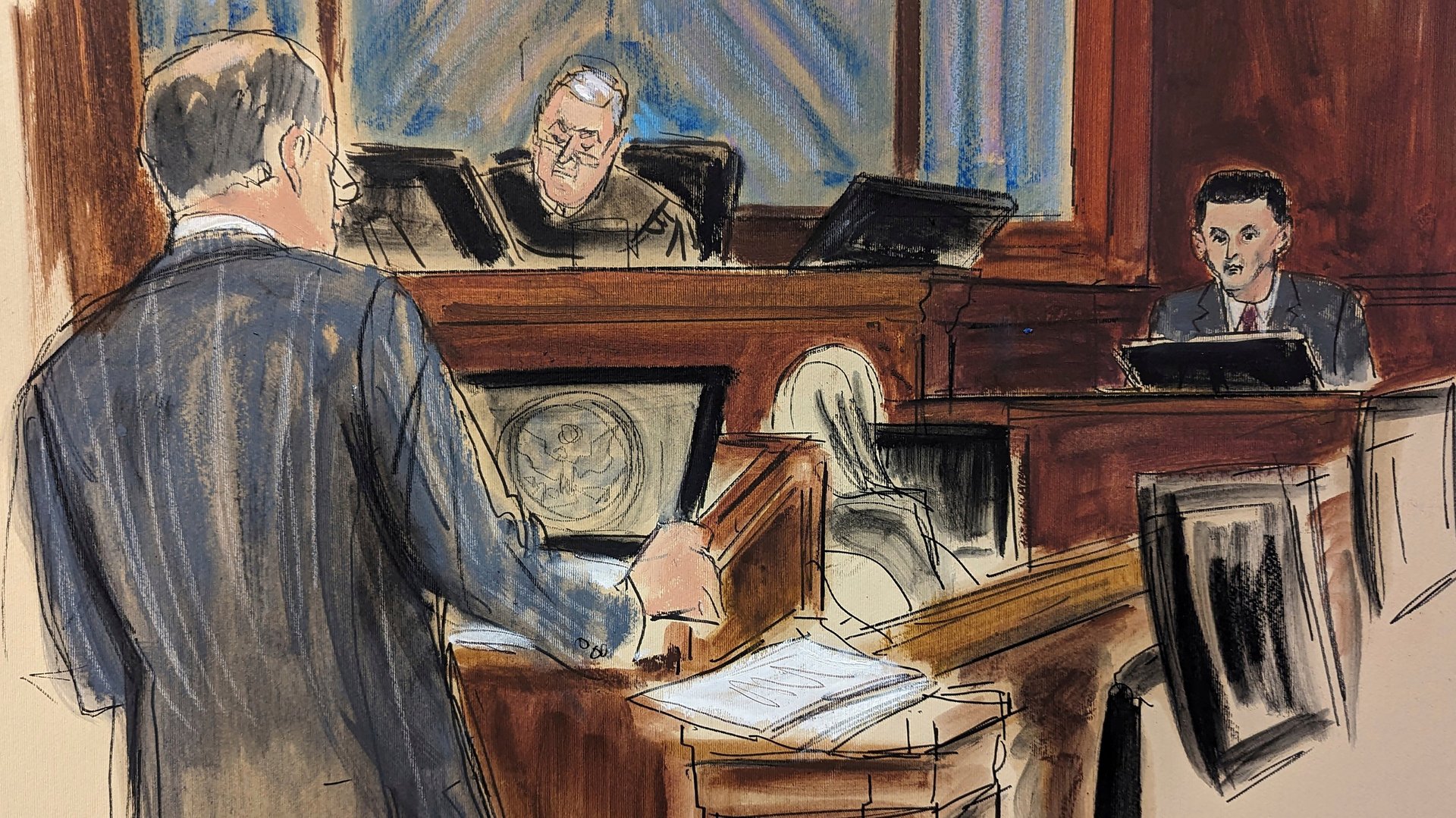FTX founder Sam Bankman-Fried testifies outside jury's presence as judge decides what he can say
Sam Bankman-Fried got a test run at testifying at his New York criminal trial when a judge sent jurors home but let him demonstrate portions of his testimony before deciding what jurors will hear

NEW YORK (AP) — Sam Bankman-Fried got a test run taking the stand at his New York criminal trial Thursday after a judge sent jurors home but let him demonstrate portions of his testimony before deciding which parts of it he'll allow.
Suggested Reading
Bankman-Fried, 31, is expected to face the jury Friday when he testifies about his version of how his multibillion-dollar cryptocurrency empire grew into a giant in the industry and then collapsed, causing billions of dollars in losses that prosecutors blame on his extravagant spending on investments, donations and a lavish lifestyle.
Related Content
During nearly three hours of testimony Thursday after jurors were sent home, Bankman-Fried tried to show that the presence of lawyers when he made decisions about how he spent customer money led him to think he was acting legally.
Assistant U.S. Attorney Danielle Sassoon drilled him with the sort of questions he'll likely face during cross-examination, frequently eliciting choppy answers in which Bankman-Fried seemed unsure of the conversations he'd had with lawyers.
Shortly before she finished, Sassoon pressed Bankman-Fried on why he hired a general counsel who had worked at a company that had a criminal insider trading scandal.
“I did want to find a general counsel who would be comfortable with the business being allowed to take reasonable risks,” Bankman-Fried said, adding that he did not want his top lawyer restraining the company from risk-taking.
Later, Sassoon asked if he was aware that his general counsel was using illegal narcotics with Bankman-Fried employees.
“Objection!” defense attorney Mark Cohen called out.
“Sustained,” Judge Lewis A. Kaplan answered. The judge said he'll rule on Friday.
The possibility of Bankman-Fried testifying drew large crowds to the lower Manhattan courthouse Thursday. Those in court included Bankman-Fried's parents, as well as Michael Lewis, the author who recently published a book on Bankman-Fried. Three overflow rooms contained dozens of crypto enthusiasts and spectators.
It seemed on Thursday that Bankman-Fried was about to start his testimony before the jury after lunch when the judge changed the plans, saying he'd prefer to make rulings on what Bankman-Fried can testify about before he starts. He had previously said he'd conduct a hearing and make those rulings on Friday.
“We're in the home stretch,” Kaplan told jurors as he sent them home for the day, saying he knew it was a little surprise for them to have the rest of the afternoon off. He told them they were likely to get the case in the first few days of next week.
Since early October, prosecutors have presented their case through witnesses and dozens of exhibits including financial records.
After prosecutors rested Thursday, defense lawyers immediately asked Kaplan to acquit Bankman-Fried on the grounds that prosecutors had failed to present sufficient evidence. The judge rejected the request.
The California entrepreneur has pleaded not guilty to conspiracy charges accusing him of diverting billions of dollars from his clients and investors to make risky investments, buy luxury housing, engage in a star-studded publicity campaign and make large political and charitable donations.
While on the witness stand Thursday, Bankman-Fried was repeatedly uncomfortable. He winced, stared downward and apologized repeatedly. He often would rephrase the prosecutor's question, saying, “I wouldn't phrase it that way.”
He often appeared unaware of how his companies were functioning, asked for documents that either did not exist or were not available to him.
In one particularly tough exchange, Sassoon asked Bankman-Fried what was written in a document that allowed him to borrow or spend customer funds. He stared at the document in silence for minutes and vaguely explained how he used funds.
When the prosecutor tried to ask the question again, Cohen objected that he had already answered the question.
“He did not answer the question, your honor,” Sassoon said.
“Agreed,” said the judge.
Bankman-Fried had previously remained quiet through a three-week trial as several members of his executive inner circle have testified against him in cooperation deals they made with the government before pleading guilty to criminal charges.
In their testimony, the executives insisted that Bankman-Fried directed them to spend billions of dollars taken from the accounts of FTX customers and funneled through Alameda Research, a hedge fund he started in 2017, two years before he created the FTX cryptocurrency exchange.
Bankman-Fried was arrested in the Bahamas and extradited to the United States last December, a month after his businesses collapsed.
Initially, he was freed on a $250 million personal recognizance bond and required to remain at the Palo Alto, California, home of his parents, longtime Stanford University law professors.
Kaplan revoked the bail in August after concluding that Bankman-Fried had tried to influence potential trial witnesses and ordered him jailed.
Those testifying against Bankman-Fried have included Caroline Ellison, his former girlfriend who was chief executive of Alameda before it was publicly revealed that billions of dollars were missing last November.
She told jurors that the collapse of the businesses brought her “relief that I didn't have to lie anymore” and she blamed Bankman-Fried for corrupting her moral compass by creating justifications for doing things that she knew to be wrong and illegal.
She also admitted doctoring financial balance sheets to try to hide that Alameda was borrowing about $10 billion from FTX customers by June 2022, a discrepancy that was revealed when customers rushed to withdraw deposits last November as word got out that their money was not safe.